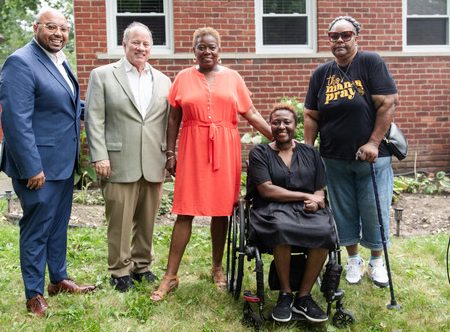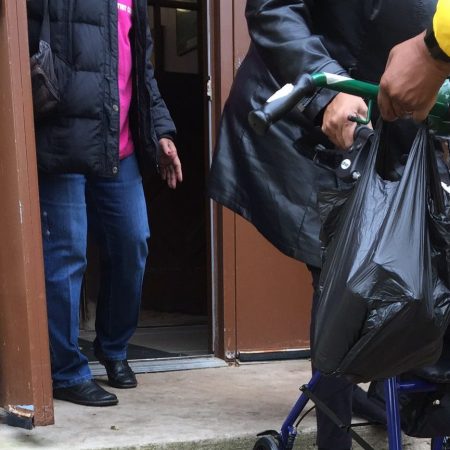Detroit Evening Report: Detroit extends deadline to apply for home accessibility repair program
The city of Detroit is using money from the American Rescue Plan Act to help residents with disabilities make their homes more accessible.
Subscribe to the Detroit Evening Report on Apple Podcasts, Spotify, NPR.org or wherever you get your podcasts.
The Detroit Home Accessibility Program — a joint project of the city of Detroit, CHN Housing Partners and Detroit Disability Power — dedicates more than $6 million in ARPA funds to home modifications for eligible residents to add ramps or lifts, widen entrances, modify handrails, or add alarms to the entries and exits of their home.
“Detroit has more than 129,000 disabled residents. Members of this large, diverse and important constituency deserve the ability to fully engage in all that our City has to offer,” said Ani Grigorian, disability access consulting manager at Detroit Disability Power, in a news release. “This program is an important step towards greater accessibility, and therefore increased well-being.”
Homeowners who live in single-family homes who receive social security disability benefits, Michigan Department of Health and Human Services (MDHHS) Children’s Healthcare Services benefits or Veterans Administration disability benefits can still apply.
The program is expected to provide accessibility upgrades to at least 250 homes.
Applicants must also have homeowner’s insurance and be current on property taxes or in a payment plan. There are income requirements for participation. For more information, visit chnhousingpartners.org/Detroit/dhap or call 866-313-2520.
Other headlines for Tuesday, Sept. 10, 2024:
- Mason K-8 Academy opened its newly renovated and stocked school library today. The Detroit Public Schools Community District (DPSCD) chose Mason to receive 18,000 new books from the Council of Great City Schools and Scholastic.
- Cass Tech students who live in Hamtramck and “Banglatown” – an area close to Hamtramck – are asking DPSCD to provide bus transportation to the school. Education nonprofit 482Forward organized student and adult members to take their appeal to tonight’s school board meeting.
- The Detroit Food Commons will host a concert series this fall. The Freedom Sounds fall concert series kicks off Sunday, Sept. 22 with jazz percussionist and Jazz at Lincoln Center alum Ali Jackson. Bassist and composer Marion Hayden will perform Oct. 27; and on Nov. 24, multi-genre percussionist and food justice advocate Aisha Ellis will perform. The series is curated by violinist and flutist Michelle May. The events, held in the Mama Imani Humphrey Banquet Hall on the second floor of Detroit Commons, cost $25 to attend with funds going towards Detroit Black Community Food Sovereignty Network’s community programs.
- The Hamtramck Parks Conservancy has a new director of programming and communications. Alicia Chiaravalli has a background in environmental science, play design and sustainability. She will be responsible for developing recreation programs, coordinating volunteers and community partnerships for the conservancy.
Do you have a community story we should tell? Let us know in an email at detroiteveningreport@wdet.org.
Trusted, accurate, up-to-date.
WDET strives to make our journalism accessible to everyone. As a public media institution, we maintain our journalistic integrity through independent support from readers like you. If you value WDET as your source of news, music and conversation, please make a gift today.
The post Detroit Evening Report: Detroit extends deadline to apply for home accessibility repair program appeared first on WDET 101.9 FM.

